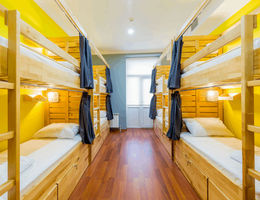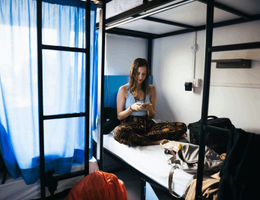How to create a financial forecast for a hostel?
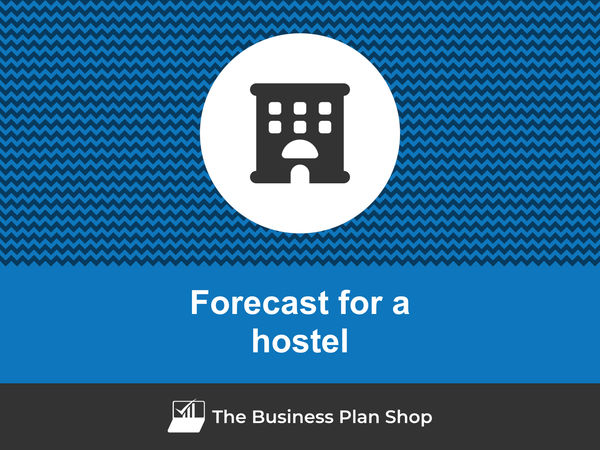
Developing and maintaining an up-to-date financial forecast for your hostel is key in order to maintain visibility on your business’s future cash flows.
If you feel overwhelmed at the thought of putting together a hostel financial forecast then don’t worry as this guide is here to help you.
We'll cover everything from: the main objectives of a financial forecast, the data you need to gather before starting, to the tables that compose it, and the tools that will help you create and maintain your forecast efficiently.
Let's get started!
Why create and maintain a financial forecast for a hostel?
The financial projections for your hostel act as a financial blueprint to guide its growth with confidence and ensure its long-term financial viability.
To create them, you will need to look at your business in detail - from sales to operating costs and investments - to assess how much profit it can generate in the years to come and what will be the associated cash flows.
During challenging market conditions, maintaining an up-to-date financial forecast enables early detection of potential financial shortfalls, allowing for timely adjustments or securing financing before facing a cash crisis.
Your hostel's financial forecast will also prove invaluable when seeking financing. Banks and investors will undoubtedly request a thorough examination of your financial figures, making precision and presentation essential.
Need a convincing business plan?
The Business Plan Shop makes it easy to create a financial forecast to assess the potential profitability of your projects, and write a business plan that’ll wow investors.

What information is used as input to build a hostel financial forecast?
A hostel's financial forecast is only as good as the inputs used to build it.
If you are creating (or updating) the forecast of an existing hostel, then you mostly need your accounting information, key historical operating non-financial data, and your team’s input on what to expect for the coming years.
If you are building financial projections for a hostel startup, you will need to have done your research and have a clear picture of your competitive environment and go-to-market strategy so that you can forecast sales accurately.
For a new venture, you will also need a precise list of the resources needed to keep the hostel running on a day-to-day basis and a list of the equipment and expenditures required to start the business (more on that later).
Let's now take a closer look at the elements that make up your hostel's financial forecast.
The sales forecast for a hostel
The sales forecast, also called topline projection, is normally where you will start when building your hostel financial forecast.
Creating a coherent sales projection boils down to estimating two key drivers:
- The average price
- The number of monthly transactions
To do this, you will need to rely on historical data (for an existing business), market research data (for both new and existing hostels), and consider the elements below:
- Location: The location of your hostel can greatly impact the average price and number of monthly transactions. If your hostel is located in a popular tourist destination, you may be able to charge higher prices and attract more guests. On the other hand, if your hostel is in a less popular area, you may need to lower your prices and may see fewer monthly transactions.
- Seasonal Demand: The time of year can also affect your hostel's average price and number of monthly transactions. During peak travel seasons, such as summer or major holidays, you may be able to charge higher prices and see more transactions. In slower seasons, you may need to offer discounts or promotions to attract guests and may see a decrease in monthly transactions.
- Facilities and Amenities: The facilities and amenities offered at your hostel can also impact the average price and number of monthly transactions. If your hostel offers a variety of amenities such as free breakfast, Wi-Fi, or organized activities, you may be able to charge higher prices and attract more guests. However, if your hostel has limited or outdated facilities, you may need to lower your prices and may see fewer transactions.
- Competition: The competition in your area can also affect your hostel's average price and number of monthly transactions. If there are many other hostels in close proximity, you may need to keep your prices competitive and offer unique amenities to stand out. However, if your hostel is the only one in the area, you may be able to charge higher prices and see more transactions.
- Events and Festivals: Events and festivals in your city or town can also impact your hostel's sales forecast. If there is a major event or festival happening nearby, you may see an increase in demand and be able to charge higher prices. However, if there are no major events happening, you may need to adjust your prices and marketing strategies to attract guests during slower periods.
After the sales forecast comes the operating expenses budget, which we will now look into in more detail.
Need a convincing business plan?
The Business Plan Shop makes it easy to create a financial forecast to assess the potential profitability of your projects, and write a business plan that’ll wow investors.

The operating expenses for a hostel
The next step is to estimate the expenses needed to run your hostel on a day-to-day basis.
These will vary based on the level of sales expected, and the location and size of your business.
But your hostel's operating expenses should include the following items at a minimum:
- Staff costs: This includes salaries, wages, bonuses, and benefits for all employees working at the hostel, such as front desk staff, housekeeping, and maintenance.
- Accountancy fees: You will need to hire an accountant to manage your financial records, prepare tax returns, and provide financial advice for your hostel.
- Insurance costs: It is important to have insurance coverage for your hostel to protect against risks such as property damage, theft, and liability.
- Software licences: You may need to purchase software licences for programs such as property management software, accounting software, and online booking systems.
- Banking fees: This includes transaction fees for processing credit and debit card payments, as well as fees for maintaining a business bank account.
- Utilities: This includes electricity, water, and gas bills for your hostel.
- Cleaning supplies: You will need to purchase cleaning supplies such as detergents, disinfectants, and paper products for your hostel.
- Maintenance and repairs: As a hostel owner, you are responsible for maintaining the property and making necessary repairs to keep it in good condition.
- Marketing and advertising: To attract guests to your hostel, you may need to spend money on marketing and advertising efforts such as social media ads, flyers, and partnerships with local businesses.
- Linens and towels: You will need to provide clean linens and towels for your guests, which will need to be replaced periodically.
- Food and beverage: If your hostel offers meals or has a bar, you will need to budget for food and beverage costs.
- Security: It is important to invest in security measures such as locks, surveillance cameras, and security personnel to ensure the safety of your guests and property.
- Training and development: To provide quality service to your guests, you may need to invest in training and development programs for your employees.
- Taxes and permits: As a business owner, you will need to pay taxes and obtain necessary permits and licenses to operate your hostel.
- Office supplies: This includes items such as paper, printer ink, pens, and other office supplies needed to run the day-to-day operations of your hostel.
This list is, of course, not exhaustive, and you'll have to adapt it according to your precise business model and size. A small hostel might not have the same level of expenditure as a larger one, for example.
What investments are needed to start or grow a hostel?
Creating and expanding a hostel also requires investments which you need to factor into your financial forecast.
Capital expenditures and initial working capital items for a hostel could include elements such as:
- Renovation or refurbishment of common areas, such as the reception, lounge, and dining area.
- Upgrades to the hostel's technology, such as new computers, printers, and software systems.
- Purchase of new furniture and fixtures, including beds, mattresses, and linens.
- Installation of security systems, such as CCTV cameras and key card access for guests.
- Investment in sustainable and eco-friendly initiatives, such as solar panels or energy-efficient appliances.
Again, this list is not exhaustive and will need to be adjusted according to the circumstances of your hostel.
Need a convincing business plan?
The Business Plan Shop makes it easy to create a financial forecast to assess the potential profitability of your projects, and write a business plan that’ll wow investors.

The financing plan of your hostel
The next step in the creation of your financial forecast for your hostel is to think about how you might finance your business.
You will have to assess how much capital will come from shareholders (equity) and how much can be secured through banks.
Bank loans will have to be modelled so that you can separate the interest expenses from the repayments of principal, and include all this data in your forecast.
Issuing share capital and obtaining a bank loan are two of the most common ways that entrepreneurs finance their businesses.
What tables compose the financial plan for a hostel?
Now let's have a look at the main output tables of your hostel's financial forecast.
The forecasted profit & loss statement
The profit & loss forecast gives you a clear picture of your business’ expected growth over the first three to five years, and whether it’s likely to be profitable or not.
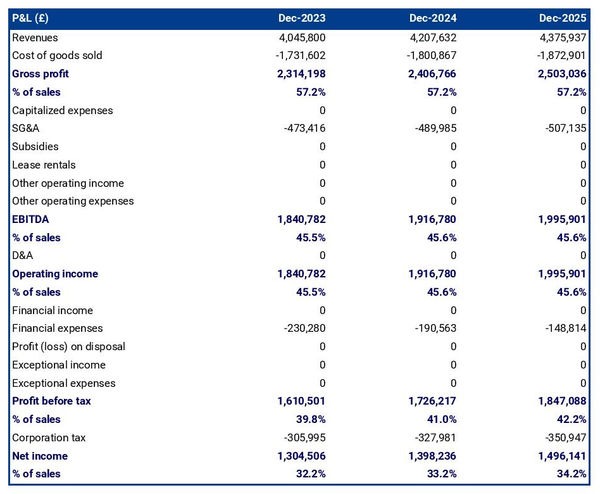
A healthy hostel's P&L statement should show:
- Sales growing at (minimum) or above (better) inflation
- Stable (minimum) or expanding (better) profit margins
- A healthy level of net profitability
This will of course depend on the stage of your business: numbers for an established hostel will look different than for a startup.
The projected balance sheet
The projected balance sheet gives an overview of your hostel's financial structure at the end of the financial year.
It is composed of three categories of items: assets, liabilities and equity:
- Assets: are what the business possesses and uses to produce cash flows. It includes resources such as cash, buildings, equipment, and accounts receivable (money owed by clients).
- Liabilities: are the debts of your hostel. They include accounts payable (money owed to suppliers), taxes due and bank loans.
- Equity: is the combination of what has been invested by the business owners and the cumulative profits to date (which are called retained earnings). Equity is a proxy for the value of the owner's stake in the business.
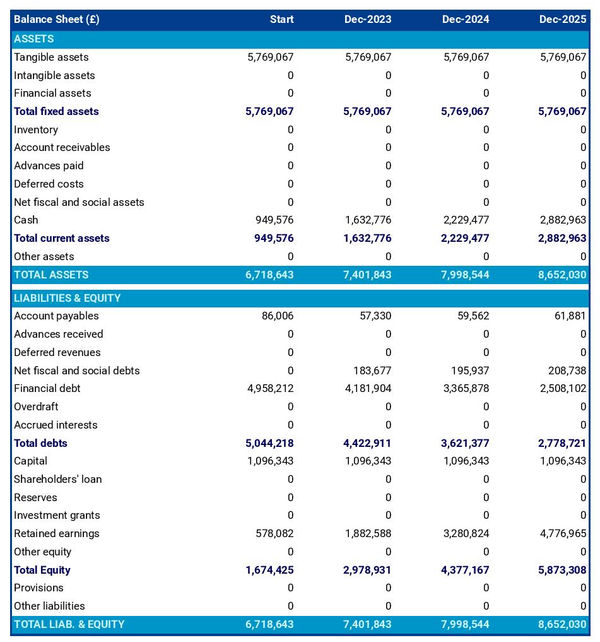
The projected cash flow statement
A projected cash flow statement for a hostel is used to show how much cash the business is generating or consuming.
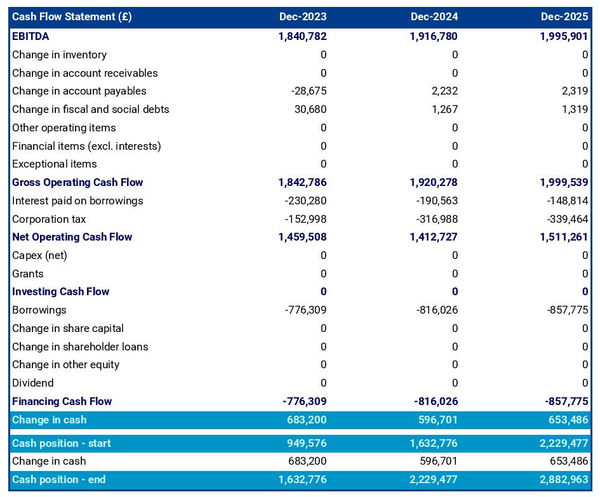
The cash flow forecast is usually organised by nature to show three key metrics:
- The operating cash flow: do the core business activities generate or consume cash?
- The investing cash flow: how much is the business investing in long-term assets (this is usually compared to the level of fixed assets on the balance sheet to assess whether the business is regularly maintaining and renewing its equipment)?
- The financing cash flow: is the business raising new financing or repaying financiers (debt repayment, dividends)?
Cash is king and keeping an eye on future cash flows is imperative for running a successful business. Therefore, you should pay close attention to your hostel's cash flow forecast.
If you are trying to secure financing, note that it is customary to provide both yearly and monthly cash flow forecasts in a financial plan - so that the reader can analyze seasonal variation and ensure the hostel is appropriately capitalised.
Need a convincing business plan?
The Business Plan Shop makes it easy to create a financial forecast to assess the potential profitability of your projects, and write a business plan that’ll wow investors.

Which tool should you use to create your hostel's financial projections?
Building a hostel financial forecast is not difficult provided that you use the right tool for the job. Let’s see what options are available below.
Using online financial forecasting software to build your hostel's projections
The modern and easiest way is to use an online financial forecasting tool such as the one we offer at The Business Plan Shop.
There are several advantages to using specialised software:
- You can easily create your financial forecast by letting the software take care of the financial calculations for you without errors
- You have access to complete financial forecast templates
- You get a complete financial forecast ready to be sent to your bank or investors
- You can easily track your actual financial performance against your financial forecast, and recalibrate your forecast as the year goes by
- You can create scenarios to stress test your forecast's main assumptions
- You can easily update your forecast as time goes by to maintain visibility on future cash flows
- You have a friendly support team on standby to assist you when you are stuck
- It’s cost-efficient and much cheaper than using an accountant or consultant (see below)
If you are interested in this type of solution, you can try our projection software for free by signing up here.
Calling in a financial consultant or chartered accountant
Outsourcing the creation of your hostel financial forecast is another possible solution.
This will cost more than using software as you can expect as your price will have to cover the accountant’s time, software cost, and profit margin.
Price can vary greatly based on the complexity of your business. For a small business, from experience, a simple three-year financial forecast (including a balance sheet, income statement, and cash flow statement) will start at around £700 or $1,000.
Bear in mind that this is for forecasts produced at a single point in time, updating or tracking your forecast against actuals will cost extra.
If you decide to outsource your forecasting:
- Make sure the professional has direct experience in your industry and is able to challenge your assumptions constructively.
- Steer away from consultants using sectorial ratios to build their client’s financial forecasts (these projections are worthless for a small business).
Why not use a spreadsheet such as Excel or Google Sheets to build your hostel's financial forecast?
You and your financial partners need numbers you can trust. Unless you have studied finance or accounting, creating a trustworthy and error-free hostel financial forecast on a spreadsheet is likely to prove challenging.
Financial modelling is very technical by nature and requires a solid grasp of accounting principles to be done without errors. This means that using spreadsheet software like Excel or Google Sheets to create accurate financial forecasts is out of reach for most business owners.
Creating forecasts in Excel is also inefficient nowadays:
- Software has advanced to the point where forecasting can be done much faster and more accurately than manually on a spreadsheet.
- With artificial intelligence, the software is capable of detecting mistakes and helping decision-making.
Spreadsheets are versatile tools but they are not tailor-made for reporting. Importing your hostel's accounting data in Excel to track actual vs. forecast is incredibly manual and tedious (and so is keeping forecasts up to date). It is much faster to use dedicated financial planning tools like The Business Plan Shop which are built specially for this.
Need a convincing business plan?
The Business Plan Shop makes it easy to create a financial forecast to assess the potential profitability of your projects, and write a business plan that’ll wow investors.

Use our financial projection templates for inspiration
The Business Plan Shop has dozens of financial forecasting templates available.
Our examples contain both the financial forecast, and a written business plan which presents, in detail, the company, the team, the strategy, and the medium-term objectives.
Whether you are just starting out or already have your own hostel, looking at our template is always a good way to get ideas on how to model financial items and what to write when creating a business plan to secure funding.
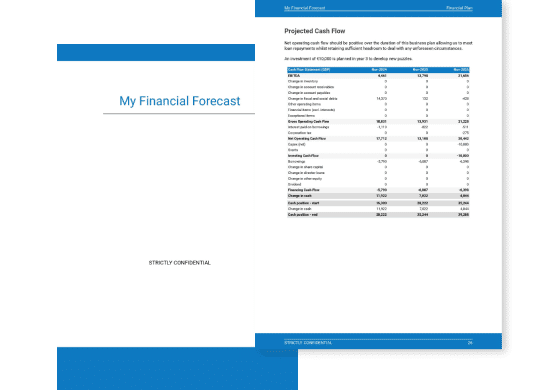
Takeaways
- A financial projection shows expected growth, profitability, and cash generation for your business over the next three to five years.
- Tracking actuals vs. forecast and keeping your financial forecast up-to-date is the only way to maintain visibility on future cash flows.
- Using financial forecasting software makes it easy to create and maintain up-to-date projections for your hostel.
You have reached the end of our guide. We hope you now have a better understanding of how to create a financial forecast for a hostel. Don't hesitate to contact our team if you have any questions or want to share your experience building forecasts!
Need a convincing business plan?
The Business Plan Shop makes it easy to create a financial forecast to assess the potential profitability of your projects, and write a business plan that’ll wow investors.

Also on The Business Plan Shop
- Example of financial projections
- How to create a turnover forecast for a business?
- Financial forecast for a business idea
Know someone who runs or wants to start a hostel? Share our financial projection guide with them!



